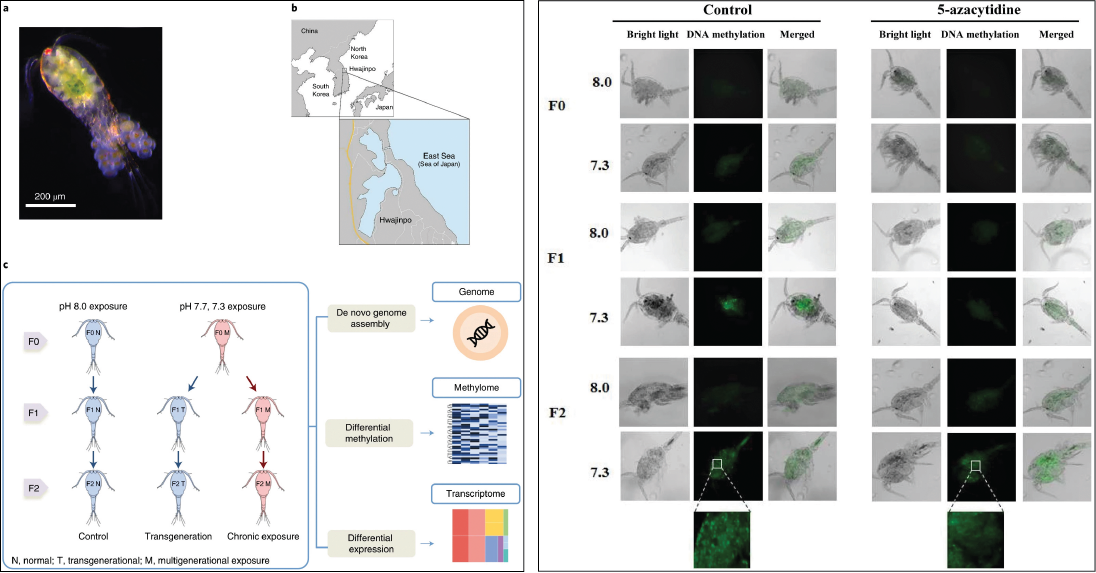Involved Members: Prof. Rudolf Shiu Sun WU
Copepods are planktonic crustaceans that are widely distributed in marine, fresh and brackish waters. They can indicate the health of the nature, but the increasing ocean acidification is affecting their reproductive rates in many ways. SKLMP member Prof. Rudolf Shiu-Sun Wu and a research team from Sungkyunkwan University in South Korea jointly discovered that copepods could adapt to ocean acidification through epigenetic changes. When copepods were exposed to acidified water across generations, there were epigenetic changes in their genes related to reproduction which enhanced the adaptability of copepods and helped them to recover their reproductive capacity in the adverse environment. This important finding has been published in the international journal Nature Climate Change.
Reference:
Lee, Y.H., Kim, M.S., Wang, M.H., Bhandari, R.K., Park, H.G., Wu, R.S.S., Lee, J.S. (2022). Epigenetic Plasticity Enables Copepods to Cope with Ocean Acidification. Nature Climate Change, 12, 918. (impact factor 28.862)
